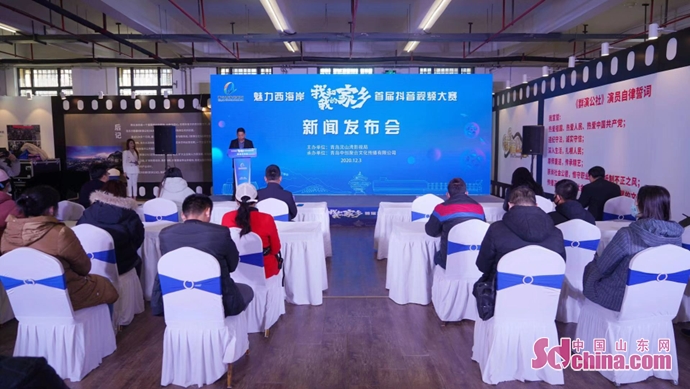Michael Flynn judge is botching effort to defend the rule of law.
As the nation’s attention has been righteously and rightfully focused on police brutality in the wake of the murder of George Floyd, a second national drama over law enforcement has been playing out in court in Washington. Last week, Judge Emmet Sullivan responded to an order from a three-judge panel of the D.C. Circuit Court of Appeals to explain his decision to request briefing over the Department of Justice’s unprecedented and outrage-inducing attempt to drop the charge against Donald Trump ally and former national security adviser Michael Flynn after he pleaded guilty to lying to the FBI. While the outcome of Sullivan’s case may not have the implications of the current debate over excessive police force, it demonstrates a different but critical threat to equal justice of the law. Based on last week’s filing, though, Sullivan presented the weakest possible legal case for his correct and appropriate actions to curb the DOJ’s apparent political protection of Trump and his cronies.
Sullivan recently appointed a retired judge to argue against the government’s motion. As a practical matter, the circuit judges have asked Sullivan why the case needs to proceed under his requested briefing schedule. Or more pointedly: What else does he need to know before granting the DOJ’s motion to dismiss the Flynn charges?
Sullivan’s response to the three-judge panel failed to offer a persuasive answer to that question. The filing focused on legal questions raised by the government’s motion—for instance, whether Sullivan can consider the “public interest” in ruling on it—but to an appeals court that may be interested in cutting the proceedings short, that is not a particularly compelling reason to let the case continue. Appeals courts specialize in legal issues—fact-gathering is the province of trial courts—so if at least two of the circuit judges want to stop Sullivan, all they need to do now is outline whatever they claim are the relevant legal considerations and argue that the facts proffered by the government are sufficient. The exercise is made easier by the fact that the relevant law is sparse and is sufficiently indeterminate that outcome-oriented judges could easily write an opinion reaching their desired result.
Advertisement Advertisement Advertisement AdvertisementThe better reason to reject Flynn’s and the DOJ’s request—but one that got virtually no attention in Sullivan’s brief—is that there are factual questions that need to be explored before any dismissal can be granted. These might include whether the government’s investigation at the time of Flynn’s FBI interview was (as the government now claims) improperly predicated, whether there was in fact any prosecutorial misconduct during the case, whether it is true that the government threatened to indict Flynn’s son if he did not plead guilty, whether Flynn actually told his prior lawyers that he did not believe he had lied to the FBI, and what considerations actually drove the government to reverse course.
AdvertisementInstead, Sullivan’s lawyers virtually conceded that the factual record was complete. They noted in passing that Sullivan has the authority to “conduct investigations as necessary,” but they did not say what an “investigation” here might look like. They also suggested that Sullivan may want to question Flynn, in part to “assess his credibility,” but Flynn may invoke his Fifth Amendment right against self-incrimination, considering that Sullivan raised the possibility that Flynn may face criminal exposure for lying in court.
AdvertisementThe government officials involved in the Flynn investigation may similarly be reluctant to provide open-ended testimony given the ongoing probe by John Durham, which makes it important to precisely define the areas of possible inquiry. By contrast, the Justice Department’s decision to seek the dismissal of Flynn’s case should be fair game for scrutiny and testimony by the relevant officials—particularly because by offering an account of the decision-making process in its brief to Sullivan, the government both conceded its relevance and waived any legal protections that might have protected those deliberations.
AdvertisementThe failure to explore any of this is curious, to say the least. It could have been motivated by a desire to avoid giving the circuit judges a target to shoot at, but the risk of being silent on the matter is greater.
AdvertisementIt may also have something to do with Sullivan’s choice of lawyer. Sullivan is being represented by Beth Wilkinson, a well-connected Washington lawyer best known for representing Supreme Court Justice Brett Kavanaugh during his confirmation after Christine Blasey Ford alleged that he had sexually assaulted her. (Disclosure: I once worked at the same law firm as Wilkinson.) Wilkinson was a key figure in the public campaign to discredit Ford—for instance, slyly but repeatedly questioning what took Ford so long to come forward—and during her media appearances, she introduced some of the many lies offered by Kavanaugh in his defense.
Advertisement Advertisement AdvertisementAs a result, any decent federal judge should have thought twice before enlisting Wilkinson, but she may have been selected by Sullivan precisely for this reason—not because of her expertise, but because her work on behalf of Kavanaugh makes it difficult for Flynn’s conservative supporters to criticize her.
Popular in News & Politics
- Congress’ Perpetual Coup Machine Is Merely Resting
- After a Rough Week of Testimony, Stormy Daniels Seems to Have the Upper Hand
- The Story About a Worm Eating RFK Jr.’s Brain Is Not As Funny As It Sounds
- I Watched Trump’s Lawyers Cross-Examine Stormy Daniels. It Was Painful.
Ultimately, Wilkinson’s past representation of then Judge Kavanaugh wouldn’t matter if she had done a better job of representing current Judge Sullivan. Sullivan’s lawyers missed the opportunity to position Sullivan as an institutionalist guarding the prerogatives of the judicial branch and performing his part to promote the rule of law—the collection of principles that includes the proposition that the law should operate neutrally and without favoring people based on their social status or political connections. This is the most important political value at stake in the Flynn proceeding, and it is a crucial part of the apolitical project that, as one prominent legal philosopher has put it, seeks to make power “less arbitrary, more predictable, more impersonal, less peremptory, less coercive even.” In the American constitutional order, this entails an interlocking set of commitments and responsibilities among all three branches, and this idea is at the heart of what people mean when they say Sullivan should not be a “rubber stamp” for DOJ actions that can only be explained right now by sheer political influence.
Judges cannot guarantee the rule of law, but they have a responsibility to their fellow Americans to try. This was Sullivan’s first opportunity to introduce and defend this vital concept himself. Unfortunately, it was a missed one.
Tweet Share Share Comment(责任编辑:产品中心)
-
 全国土壤普查办抽验组到广东开展土壤普查质量抽验_南方+_南方plus8月17-19日,全国土壤普查办质量抽验组到广东开展第三次全国土壤普查质量抽验工作,抽验组由生态环境部华南环境科学研究所副所长刘晓文
...[详细]
全国土壤普查办抽验组到广东开展土壤普查质量抽验_南方+_南方plus8月17-19日,全国土壤普查办质量抽验组到广东开展第三次全国土壤普查质量抽验工作,抽验组由生态环境部华南环境科学研究所副所长刘晓文
...[详细]
-
 中国山东网8月8日讯 第30届青岛国际啤酒节围绕“时尚”主题,创新“线上+线下”的办节模式,首次打造“云上啤酒节”,通过&ldq
...[详细]
中国山东网8月8日讯 第30届青岛国际啤酒节围绕“时尚”主题,创新“线上+线下”的办节模式,首次打造“云上啤酒节”,通过&ldq
...[详细]
-
 本报讯“克勤于邦,克俭于家。”勤俭节约体现在每一张纸、每一滴水、每一度用电上。近日,记者走访了解到,我市不少单位和企业推广绿色办公模式,采用电子化、无纸化办公形式,减少纸质资料印发数量,节约资源。雨城
...[详细]
本报讯“克勤于邦,克俭于家。”勤俭节约体现在每一张纸、每一滴水、每一度用电上。近日,记者走访了解到,我市不少单位和企业推广绿色办公模式,采用电子化、无纸化办公形式,减少纸质资料印发数量,节约资源。雨城
...[详细]
-
 致敬!广东援疆中的“她力量”_南方+_南方plus她们是医护人员,心怀大爱,救死扶伤;她们是教师,耐心细致,春风化雨;她们是基层干部,奋发有为,攻坚克难。她们是女儿,是妻子,是母亲,更是践行使命的广东
...[详细]
致敬!广东援疆中的“她力量”_南方+_南方plus她们是医护人员,心怀大爱,救死扶伤;她们是教师,耐心细致,春风化雨;她们是基层干部,奋发有为,攻坚克难。她们是女儿,是妻子,是母亲,更是践行使命的广东
...[详细]
-
 本报讯近日,市教育局班子成员碰头会召开,听取近期有关工作落实情况汇报,安排部署下一步重点工作。会议要求,要狠抓工作落实,全面推进教育各项工作。全力推进川西教育中心建设,扎实开展省、市示范性普通高中、义
...[详细]
本报讯近日,市教育局班子成员碰头会召开,听取近期有关工作落实情况汇报,安排部署下一步重点工作。会议要求,要狠抓工作落实,全面推进教育各项工作。全力推进川西教育中心建设,扎实开展省、市示范性普通高中、义
...[详细]
-
 中国山东网12月3日讯 12月3日上午,由青岛灵山湾影视局主办、青岛中创聚合文化传播有限公司承办的魅力西海岸“我和我的家乡”首届抖音视频大赛新闻发布会在群演公社顺利举行。赛事的
...[详细]
中国山东网12月3日讯 12月3日上午,由青岛灵山湾影视局主办、青岛中创聚合文化传播有限公司承办的魅力西海岸“我和我的家乡”首届抖音视频大赛新闻发布会在群演公社顺利举行。赛事的
...[详细]
-
商户专属 无需等待 工商银行“商户贷”:普市井百业 惠烟火千万
 ...[详细]
...[详细]
-
“赏析•饰美”服饰文化市集开集 大学路文艺老街再添时尚新活力
 中国山东网6月13日讯6月13日,骆驼祥子博物馆北侧的停车场格外热闹,“赏析•饰美”服饰文化市集开集了!市集以服饰文化为主题,30多个摊位,上百种商品,服装、首饰、工
...[详细]
中国山东网6月13日讯6月13日,骆驼祥子博物馆北侧的停车场格外热闹,“赏析•饰美”服饰文化市集开集了!市集以服饰文化为主题,30多个摊位,上百种商品,服装、首饰、工
...[详细]
-
PCB official under probe for conflict of interest
 ListentoarticleThe Pakistan Cricket Board (PCB) has launched an investigation into a senior official
...[详细]
ListentoarticleThe Pakistan Cricket Board (PCB) has launched an investigation into a senior official
...[详细]
-
 11月30日,中国平安举办“平安大讲堂·投资趋势与资产配置策略会”,围绕2023年宏观投资趋势变化、投资挑战和机遇,知名人文财经观察家秦朔、平安银行首席策略分析师
...[详细]
11月30日,中国平安举办“平安大讲堂·投资趋势与资产配置策略会”,围绕2023年宏观投资趋势变化、投资挑战和机遇,知名人文财经观察家秦朔、平安银行首席策略分析师
...[详细]
- US to oppose North Korean worker dispatch to occupied Ukrainian territory: State Dept.
- 门面担当是Ta们!新会陈皮系列产品包装评选获奖名单出炉
- 中国综艺嘉年华项目落户青岛 打造青岛综艺“样板间”
- 匠心15年!招行私行再获“亚太地区杰出全球私人银行”奖项
- Supercritical geothermal power: Limitless promise or impossible dream?
- 閲戣瀺鐭ヨ瘑鏅強鏈坾骞冲畨浜哄闈掑矝鍒嗗叕鍙告俯棣ㄦ彁绀猴細淇濋櫓鍚堝悓鐨勮矗浠诲厤闄ゆ潯娆撅紝鎮ㄩ兘浜嗚В鍚?
- 以茶为媒,文化交融 2020 李沧区文化茶座邂逅多彩李沧

 雨城区疾控中心提示:科学补碘 防治碘缺乏病
雨城区疾控中心提示:科学补碘 防治碘缺乏病 网络安全为人民、网络安全靠人民
网络安全为人民、网络安全靠人民 平安人寿青岛分公司:组织参加山东省第二届反洗钱知识网络竞赛暨集中宣传活动 营造反洗钱氛围
平安人寿青岛分公司:组织参加山东省第二届反洗钱知识网络竞赛暨集中宣传活动 营造反洗钱氛围 雅安市名山区应对新型冠状病毒肺炎应急指挥部关于全面加强部分区域(蒙阳街道、蒙顶山镇)社会面管控的通告
雅安市名山区应对新型冠状病毒肺炎应急指挥部关于全面加强部分区域(蒙阳街道、蒙顶山镇)社会面管控的通告 9 Planetariums to Get Lost in the Cosmos
9 Planetariums to Get Lost in the Cosmos
